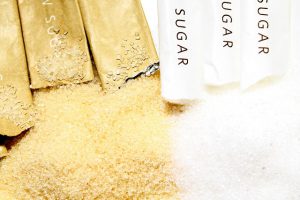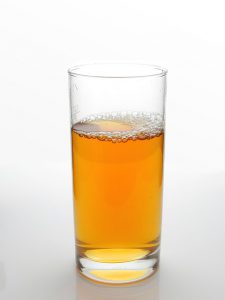Sugar water for baby constipation; is a good home remedy that can help ease and eventually help get rid of constipation in babies and infants. However, keeping your baby hydrated is a good thing. As it helps the baby to replace fluids that his or her body loses during the day and at night; it can be either through vomiting, passing urine sweating or other ways of fluid loss.
How to treat constipation in babies.

I suggest that you try and use sugar water for treating constipation in babies. As it helps to soften the dry pebbly hard stool your baby passes. And can also help ease the flow of stool in the bowls. Furthermore, I prefer that you begin by trying out natural remedies first before opting for medicine. However, start by increasing the amount of water in your baby’s diet.
Brown sugar for baby constipation.

Sugar water for baby constipation has been used on babies for centuries and is still recommended today. This method or recipe helps add some sugar to a baby’s diet. Once the baby consumes this special liquid, it draws additional fluid into the baby’s bowel. Again helping to soften the stools. Adding sugar or some form of sugar to your baby’s formula is also an acceptance. A small amount of cooled, boiled water does help as well.
Brown sugar water.

Utensils
- Teaspoon.
- Pot.
- Bowl.
- Baby bottle.
Ingredients
- ½ teaspoon of brown sugar.
- 6 teaspoons of 1 Oz of water.
Method
- Boil water in pot and leave to stand.
- Add ½ teaspoon of brown sugar to the warm water.
- Mix well and pour into baby bottle.
- Feed your baby the solution 3 times a day.
- If baby is on formula ;feed the baby before feeds, until your baby’s poop changes from hard to soft consistency.
This sugar-water solution will help you hydrate your baby’s system as well as get rid of constipation. When your baby’s body losses fluids and electrolytes such as mineral salts in the form of sodium, potassium and Chloride. It will not function well as these are essential for normal body functioning. That is why you need to help hydrate your baby.
Dehydration signs in babies.
These signs vary depending on the level of fluid and electrolyte loss. It ranges from mild, moderate to severe dehydration. If you note that your baby is not wetting his or her diapers for 3 hours or more. Furthermore, if your baby’s lips are dry and cracked it might be a sign of dehydration. Also, when their skin becomes cold and pale; with a fast pulse and rapid breathing. Some babies when dehydrated can become easily irritable. With a high fever together with frequent abnormal sleep. Nevertheless, If you suspect your child is dehydrated; contact your doctor immediately because severe dehydration requires hospitalization.
Is sugar water effective for babies?
Due to the naturally sweet taste of sugar; this solution is believed to have a calming effect on babies. Furthermore, sugar water helps distract the baby away from the pain. This is supported by the study published in the Archives of Disease in Childhood found that babies up to 1 year old cried less and may have felt less pain when given a sugar-water solution before getting a vaccine shot. But more research is needed in order to tell how exactly sugar waterworks for pain in newborns and the correct dosage needed to be effective.
What are the risks of giving sugar water to your baby?

So in order to avoid incorrect use or overuse of the treatment. Seek help from your medical advisor. Which can however lead to further complications like electrolyte disturbances that may lead to seizures in severe cases. These electrolytes are equally sensitive and need not be disturbed because when the baby’s body gets too much water. Automatically, it dilutes the amount of sodium, putting electrolytes off balance. This causes tissue to swell and can cause a seizure, or even put your child into a coma.
Dr Fisher says “Too much sugar water may affect the baby’s appetite for breast milk or for formula. And a newborn baby should only take a fluid with nutrients and protein; not purely a liquid made of water and sugar,”. Sugar water, when mused incorrectly can also result in side effects such as an upset stomach and a decreased appetite for breast milk or formula milk.



